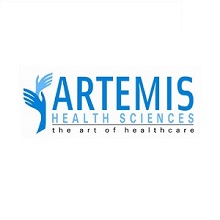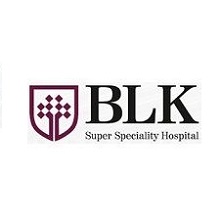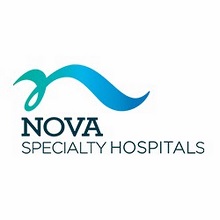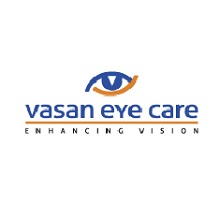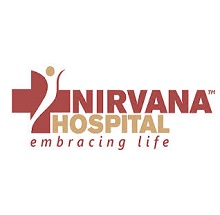Medical Treatments
- Urology Treatment
- Bariatric Obesity Surgery
- Oncology Cancer Treatment
- Cardiology
- Cosmetic Plastic Surgery
- ENT-Head And Neck Surgery
- Infertility Or IVF Treatment
- Joint Replacement Surgery
- Spine Surgery
- Organ Transplant
- Neurology
- Orthopedic Surgery
- Nephrology
- Stem Cell Therapy
- Endocrionology Or Diabetes
- 3D Liposuction Abdomen Lower Back
- Breast Lifting Implant
- Paediatrics Child Neonate
- Robotic Surgery
- Dentistry Dental Implant
- Gynaecology
- Pulmonology /Chest /Respiratory
- Dermatology And Venerelogy
- Opthalmology Eye Treatment
- Gastroenterology Or Hepatology
- Cyber Knife Radiosurgery
- Bone Marrow Surgery Transplant

Opthalmology Eye Treatment
Ophthalmologists are basically physicians with college degree who have completed medical school & residency in Ophthalmology. This training equips eye specialists provide a complete spectrum of eye care including medical treatment, prescription for glasses & contact lenses alongside complex microsurgery. A vast multitude of conditions & diseases relating to the eye can be diagnosed under Ophthalmology.
What is Ophthalmology?
Medical procedures dealing with anatomy, physiology & diseases of the eye are called Ophthalmology. Estimates indicate 285 million people to be visually impaired all around the globe. Of these 80% visual impairment problems can be effectively cured. Many eye diseases do not necessarily cause symptoms for long periods of time. Early diagnosis & proper treatment can prevent loss of sight which can even lead to blindness. Timely due care must be especially given to eye conditions like diabetic eye disease, macular degeneration, glaucoma, etc.
Eye Surgery in India with AVAN MediTour
AVAN MediTour top eye hospitals in India comprise of highly skilled specialist doctors, surgeons, retinologists, cornea specialists, neurologists, diabetologists & specialists from other allied fields. Ophthalmology centers in India offer excellent success rates & are at par with best eye treatments provided anywhere else in the world.
Cost of Eye Treatment in India
Cost of Eye Surgery in India is just about 25% of what it takes for treatments in the developed Western countries.
Types of Eye Surgery
Cataract Eye Surgery
Cataracts are mostly associated with aging problems & are common among the age group above 60+ years. Prevalence of cataract is also expected to significantly grow in the coming years. Common symptoms of cataract formation are blurred & cloudy vision, light sensitivity & dimness of colors. Cataract surgery is designed to remove the cloudy film formed inside the eye to be replaced by an artificial lens. Called intraocular lens or IOL, it is effectively able to restore clear vision. Surgical procedure time is just about 15 minutes but recovery takes about a month. We are thankful to the modern cataract surgery procedures for making it one of the safest & effective operations performed nowadays. Much more than 3 million cataract operations are performed each year in United States alone.
Types of Cataract Eye Surgery
- Sub-capsular Cataract
- Nuclear Cataract
- Cortical Cataract
Corrective Laser Eye Surgery
Corrective Laser Eye Surgery is also known as Vision Correction Surgery or Refractive Eye Surgery. LASIK – Laser in Situ Keratomileusis is the most popular eye procedure of the famous three. Photorefractive Keratectomy (PRK) & LASEK – Laser Epithelial Keratomileusis are the other two. Overall results of these eye surgical procedures are long-lasting over a 7 year follow-up. These are no one-size-fit-all procedures & therefore each one must be evaluated & treated as individual cases.
Types of Laser Eye Surgery
LASIK Eye Surgery
Laser In-Situ Keratomileusis (LASIK) surgery is a popular eye procedure used for correction of vision in people who are either farsighted, nearsighted or having astigmatism. Most laser vision-correction surgical procedures work by reshaping cornea, the front portion of eye, such that light passing through is properly focused on retina located within the back portion. LASIK is one of the top surgical techniques utilized to reshape cornea. It is associated with very little pain & corrected vision is immediately available.
Laser Epithelial Keratomileusis (LASEK)
LASEK is designed so as to combine the benefits of LASIK & PRK into a single eye surgery procedure. Often used to treat near-sightedness, far-sightedness or astigmatism, LASEK avoids complications associated with creating & reattaching flap in cornea. Moreover, LASEK procedure causes dry eye problems less frequently than other similar eye procedures.
IntraLase
This Intralase ophthalmology eye surgery is quite similar to LASIK, except the fact that in this the eye surgeon utilizes an extra laser in-spite of utilizing a blade to make the flap in the outer layers.
Photorefractive Keratectomy (PRK)
PRK or Photorefractive Keratectomy is a type of laser eye surgery which is used to treat mild or moderate near-sightedness, far-sightedness or astigmatism. Outer layer of cornea is reshaped using excimer laser in this procedure to correct vision. This vision correction surgery which lasts less than a minute may also include cutting-off the corneal flap as part of procedure.
Glaucoma
Glaucoma is a broad term describing a group of ocular disorders resulting in intraocular pressure (IOP) & optic nerve damage. Glaucoma is further bifurcated into Open-Angle Glaucoma & Closed-Angle Glaucoma categories. Open-Angle Glaucoma is painless & normally develops slowly over long periods of time. It often displays no visible symptoms until disease has significantly progressed. Closed-Angle Glaucoma is characterized by vomiting, nausea, redness & sudden eye pain. Symptoms result from sudden spike in intraocular pressure, & are absolutely a case of medical emergency. Glaucoma in cases can permanently damage vision. Vision once lost cannot be recovered, so most Glaucoma treatments aim to prevent further loss. Glaucoma is the second leading cause of blindness in the world.
Intraocular Lens Implant (IOL)
Intraocular Lens Implant is synthetic, artificial lens replaced inside eye through surgery to recover focusing power of natural lens usually removed as part of cataract surgery. This option can be utilized in cases of cataract surgery for one or both eyes. Making less of the compliance issue when compared to contact lens, IOL is a permanent fixture inside eye.
Retinal Detachment Surgery
Surgery is the only option for retinal detachment. Retinal Detachment Surgery aims to reattach retina so as to prevent or reverse the condition. Most retinal detachments can be effectively repaired using pneumatic retinopexy, sclera buckle surgery or vitrectomy. Vision gets worse when retina loses contact with supporting layers. Ophthalmologists would generally prescribe surgery within few days of being diagnosed with retinal detachment. Going in for surgery while macula is still attached increases chances of saving vision. Proper timing is essential; therefore quick action is important for the success of surgery.
Retinal Cancer
Choroid is a dense layer of blood vessels supplying blood to retina. This is also the location where Retinal Cancers are generally found to occur. Sandwiched between retina & the outer white layer of eye, any damage to choroid by cancer is most likely to affect vision negatively. Choroid melanoma is cancer found to originate from melanocytes, the pigment producing cells of choroid. Most common among white-skinned humans, these frequently occur in the age group from 55-60 years. Large melanomas are found to extend into orbit or spread to other parts of the body through bloodstream to prove fatal. Early diagnosis of Retinal Cancer is valuable since smaller tumours are far easy to cure.
Vitrectomy
Vitrectomy is surgical procedure employed for removing vitreous gel from the middle section of the eye. This may be important in cases of retinal detachment as removal will allow ophthalmologist better access to the back of eye. Vitreous gel is also removed in cases of vitreous haemorrhage when blood does not clear on its own. The surgeon inserts a small instrument into eye, cuts through into vitreous gel & sucks it out, during Vitrectomy operation. Subsequently after gel removal, the surgeon may proceed to treat retina with laser, or cut or remove scarred tissue, flatten detached areas or repair tears & holes of retina & macula.
Ptosis
Ptosis is drooping or falling of the upper or lower eyelid. It can affect one or both eyelids. It can also be inherited, often being present at birth or occur later in life. The drooping is found to be worse when subjects stay awake for longer periods & muscles feel tired. In some cases the lid may droop only slightly while in some the pupils are entirely covered. Sometimes Ptosis can restrict & even block vision completely. In severe cases where Ptosis is left untreated, these degenerate into other medical conditions like astigmatism or amblyopia. Therefore it is important that Ptosis is treated in early stages much before they interfere with vision development.
Corneal Transplant
During this surgical procedure, eye surgeons normally remove a portion of cornea & replace it with new section of cornea from donor. Called Keratoplasty, over 40,000 cornea transplants are performed in U.S. alone every year. Cornea basically is clear tissue covering eye & letting light pass through. There are plenty of reasons for damage to cornea & which affect basic function. Corneal scarring from infection & trauma is quite normal. Then Keratoconus is a degenerative condition where cornea gets thinner than usual. Other inherited corneal conditions include Lattice dystrophy, Fuch’s dystrophy & others. In cases where cornea no more allows light entry into eye because of disease or scarring, Corneal Transplant is an ideal treatment.
Squint Eye Correction
Strabismus refers to an eye condition in which the eyes look imbalanced or squinted. The muscles responsible for holding or controlling eyes become weak which also affect eye sight. The purpose of squint eye surgery is to align & synchronize both the eyes, preserve vision & to restore two-eyed vision. The Squint Eye Correction surgery takes an hour or less & is an outpatient procedure. If squint is present in one eye then the other eye is also corrected for balanced functioning.
Types Of Eye Surgery |
Days in Hospital |
Procedure Cost (USD) |
|---|---|---|
| Cornea Transplant surgery cost in India | Day care | 700 |
| Lasik – standard | Day care | 500 |
| Lasik – custom | Day care | 800 |
| Cataract surgery cost in India | Day care | 1500 |
| Glaucoma surgery cost in India | Day care | 1500 |
| Cataract + Glaucoma | Day care | 2500 |
| Squint | Day care/ 1day | 800 |
| Retinal Detachment | Day care/ 1day | 800 |
| Vitrectomy | Day care/ 1day | 800 |
| Vitrectomy + Retinal Detachment | Day care/ 1day | 1500 |
| Ptosis | Day care | 900 |
Inclusions and Exclusions
INCLUSIONS
1. Airport Pick-up on Arrival in India2. Airport Drop on Departure from India
3. Cost of initial Evaluation and Diagnosis
4. Cost of the Surgery or Treatment
5. Cost of applicable one implant/prosthesis
6. OT Charges and Surgeon’s Fees
7. Consultation Fees of the Doctor for the concerned specialty
8. Nursing and Dietician’s Charges
9. Hospital Stay for the specified number of days in the respective room category as mentioned against the package
10. Hospital stay includes stay of the patient and one attendant for the duration of stay mentioned against the package
11. Routine investigations and medicines related to the surgery or treatment.
12. Food for the patient and the attendant for the specified number of days as mentioned against the package
13. Travel Assistance/Medical Visa Invite/FRRO/ Visa Extensions
14. Assistance in finding right budget hotel or guest house accommodation.
15. Issuing Invitation Letter for Medical Visa.
EXCLUSIONS
1. All expenses for stay beyond the specified number of days2. Cross Consultations other than the specified specialty
3. Use of special drugs and consumables
4. Blood products
5. Any other additional procedure
6. Post discharge consultations, medicines, procedures and follow-ups
7. Treatment of any unrelated illness or procedures other than the one for which this estimate has been prepared
8. Travel Expenses and Hotel Stay
DISCLAIMER:
* Quote given is ONLY for the treatment in the hospital and DOES NOT include food as well as the accommodation cost outside the hospital.
* The quote may vary in case of co-morbidities, which are associated medical conditions and an extended stay.
* The treatment suggested is as per the information and reports provided to us. The line of treatment may differ according to the additional and comprehensive details asked by our consultants.
* The prices quoted are only indicative and may differ. They can be confirmed only after the patient is assessed by a doctor.
* The complete treatment cost has to be deposited in advance after the finance counseling for the patient is done at the hospital




